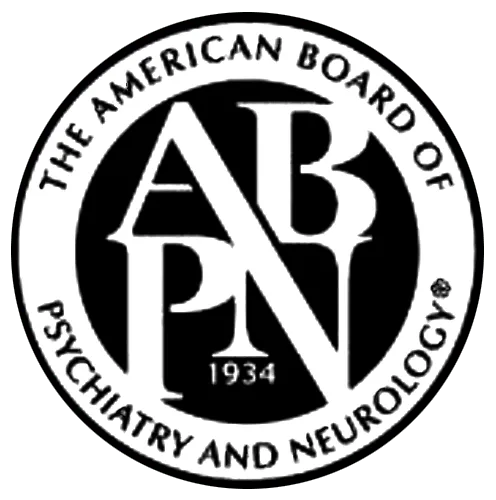General Psychiatry Services
A comprehensive evaluation by a psychiatrist is a thorough assessment of your mental health and well-being. During this evaluation the psychiatrist will ask you questions about your thoughts, feelings, behaviors and any symptoms you may be experiencing. They may also inquire about your medical history, family history and any medications you are currently taking. This evaluation helps the psychiatrist understand your concerns and make an accurate diagnosis if needed. It’s important to be honest and open during the evaluation so that the psychiatrist can provide the best recommendations for treatment which may include therapy, medications or other forms of support. Working together with your psychiatrist ensures you receive the care that’s right for you.


Psychopharmacological interventions
Psychopharmacological intervention refers to using medications to treat mental health conditions. These medications are designed to help balance chemicals in the brain that affect mood, emotions and behavior. They can be prescribed by doctors such as psychiatrists or primary care physicians, based on the specific symptoms and needs of each patient. It’s important to take these medications exactly as prescribed and to communicate any side effects or concerns with your doctor. Alongside therapy and other treatments, psychopharmacological interventions can often improve symptoms and help people lead more fulfilling lives. If you have questions about medication for your mental health, talking openly with your healthcare provider is essential.
Psychoeducation
Psychoeducation by a psychiatrist involves teaching you and your loved ones about mental health conditions, treatments and ways to manage symptoms. It helps you understand your diagnosis. How it affects your life and what you can do to feel better? Psychoeducation may cover topics like recognizing early signs of relapse, coping strategies and the importance of sticking to treatment plans. It’s usually done in sessions where you can ask questions and learn how to make informed decisions about your mental health. This knowledge empowers you to take an active role in your treatment and improve your overall well-being with support from your psychiatrist.


Post Traumatic Stress Disorder (PTSD)
Post-Traumatic Stress Disorder (PTSD) is a mental health condition that some people develop after experiencing or witnessing a traumatic event. These events can be very distressing and may include things like accidents, violence, natural disasters or combat. People with PTSD often have flashbacks or nightmares about the event, feel on edge or easily startled and may avoid situations that remind them of the trauma. These symptoms can disrupt daily life and make it hard to function normally. It’s important to know that PTSD is a real medical condition and not a sign of weakness. Treatment with a psychiatrist often involves therapy such as cognitive behavioral therapy (CBT) and sometimes medications to help manage symptoms. With the right support and treatment, many people with PTSD can recover and improve their quality of life. If you or someone you know is experiencing these symptoms, talking to a psychiatrist can help start the path to healing.
Obsessive Compulsive Disorder (OCD)
Obsessive-Compulsive Disorder (OCD) is a mental health condition that causes repetitive thoughts and behaviors. People with OCD may have intrusive thoughts, called obsessions, that create anxiety or distress. To relieve these feelings, they perform repetitive actions, called compulsions. For example, someone might obsessively clean, check things repeatedly or arrange objects in a specific way. These rituals can take up a lot of time and interfere with daily life. It’s important to understand that OCD is a medical condition, not just a personality trait or something that can be easily controlled. Treatment often involves therapy such as cognitive behavioral therapy (CBT) to help change thought patterns and behaviors. In some cases, medications can also be helpful. With the right support from a psychiatrist or mental health professional, people with OCD can learn to manage their symptoms and lead fulfilling lives. If you think you might have OCD talking to a psychiatrist can help you understand the condition and find effective treatment options.


Anxiety Disorder
Anxiety disorders are conditions where people feel excessive worry, fear or nervousness that affects their daily life. It’s normal to feel anxious sometimes but with anxiety disorders. These feelings can be overwhelming and hard to control. There are different types of anxiety disorders such as generalized anxiety disorder, panic disorder and social anxiety disorder. Symptoms can include feeling restless, having trouble sleeping, sweating or having a racing heart. Anxiety disorders are treatable and a psychiatrist can help by providing therapy, medications or both. It’s important to seek help if anxiety is interfering with your daily activities or causing distress. Talking to a psychiatrist can lead to a better understanding of your symptoms and a personalized treatment plan to manage anxiety effectively.
Panic Disorder
Panic disorder is a type of anxiety disorder where a person experiences sudden and intense periods of fear, known as panic attacks. These attacks can happen unexpectedly and often reach their peak within minutes. During a panic attack, you may feel like you can’t breathe have a racing heart, sweat excessively or feel dizzy. These symptoms can be very frightening but it’s important to know that panic disorder is treatable. A psychiatrist can help diagnose panic disorder by talking about your symptoms and medical history. Treatment may include therapy such as cognitive behavioral therapy (CBT) to learn coping skills and understand triggers. Medications may also be prescribed to reduce the frequency and intensity of panic attacks. With the right support and treatment plan, many people with panic disorder can manage their symptoms and lead fulfilling lives. If you think you might have panic disorder, talking to a psychiatrist can provide guidance and help you find effective ways to feel better.


Depression
Depressive disorder often simply called depression is a common mental health condition that affects how you feel, think and handle daily activities. It goes beyond feeling sad or down occasionally. People with depressive disorder may experience persistent feelings of sadness, hopelessness or emptiness that can last for weeks or even months. Other symptoms include loss of interest in activities you once enjoyed, changes in appetite or sleep patterns, and difficulty concentrating or making decisions. Depression can vary in severity from mild to severe and it can impact relationships, work and overall well-being. A psychiatrist can diagnose depression by discussing your symptoms and medical history. Treatment may involve therapy such as cognitive behavioral therapy (CBT) to change negative thought patterns and behaviors. Medications like antidepressants may also be prescribed to help manage symptoms. With the right support and treatment plan tailored to your needs, many people with depressive disorder can improve and lead fulfilling lives. If you think you might be experiencing depression, talking to a psychiatrist is an important step toward feeling better.
Bipolar Disorder
Bipolar disorder is a mental health condition that causes extreme mood swings that include emotional highs (mania or hypomania) and lows (depression). These mood swings can affect energy levels, sleep patterns, thinking and behavior. During manic episodes, a person may feel overly energetic, impulsive and have racing thoughts. In depressive episodes, they may feel very sad, hopeless and lose interest in activities they once enjoyed. Bipolar disorder can vary in severity and can interfere with daily life and relationships if untreated. A psychiatrist can diagnose bipolar disorder based on symptoms and history. Treatment often includes medications to stabilize mood swings and therapy to manage symptoms and learn coping strategies. With proper treatment and support, many people with bipolar disorder can manage their condition effectively and lead fulfilling lives. Seeking help from a psychiatrist is essential for understanding your symptoms and finding the right treatment plan.


Attention Deficit Hyperactivity Disorder ADHD/ADD
Attention Deficit Hyperactivity Disorder (ADHD) and Attention Deficit Disorder (ADD) are conditions that affect how the brain processes information and controls impulses. People with ADHD/ADD may have difficulty paying attention, staying organized and controlling their behavior. This can affect school or work performance and relationships. Symptoms vary but can include being easily distracted, forgetful or restless. ADHD is often diagnosed in childhood but can persist into adulthood. A psychiatrist can diagnose ADHD/ADD based on symptoms observed over time. Treatment may involve medications to improve focus and behavior as well as behavioral therapy to learn coping skills and strategies. With proper support and treatment, many people with ADHD/ADD can manage their symptoms and succeed in daily life. If you suspect you or your child may have ADHD/ADD talking to a psychiatrist can provide guidance and help create a plan for managing symptoms effectively.
Psychotic Disorder Schizophrenia
A psychotic disorder is a mental health condition where a person experiences a break from reality which can include hallucinations (seeing or hearing things that aren’t there) and delusions (strong beliefs that aren’t true). These experiences can be very distressing and make it hard to distinguish between what is real and what isn’t. Psychotic disorders can vary in severity and may include conditions like schizophrenia or schizoaffective disorder. A psychiatrist can diagnose a psychotic disorder by evaluating symptoms and medical history. Treatment often involves medications to manage symptoms and therapy to help understand and cope with the condition. With proper treatment and support, many people with psychotic disorders can lead fulfilling lives and manage their symptoms effectively. If you or someone you know is experiencing symptoms of a psychotic disorder. It’s important to seek help from a psychiatrist or mental health professional.


Transcranial Magnetic Stimulation (TMS)
Transcranial Magnetic Stimulation (TMS) is a non-invasive procedure used to treat depression and other mental health conditions. During TMS a device sends magnetic pulses to specific areas of the brain that are involved in mood regulation. These pulses stimulate brain cells and can help alleviate symptoms of depression. TMS is typically used when other treatments like medication haven’t been effective. The procedure is painless and does not require anesthesia, allowing you to remain awake throughout. Treatment sessions are usually conducted several times a week over several weeks. TMS has been shown to be safe and effective for many people, helping to improve mood and overall well-being. If you’re considering TMS as a treatment option, talking to a psychiatrist can provide more information and help determine if it’s suitable for your needs.
Electroconvulsive Therapy (ECT)
Electroconvulsive Therapy (ECT) is a treatment for severe depression and some other mental health conditions. It works by sending small electrical currents through the brain, which trigger a brief seizure. This seizure can help relieve symptoms of depression and other mental illnesses. ECT is typically used when other treatments like medications or therapy haven’t worked. The procedure is done under general anesthesia. So you are asleep and don’t feel any pain during the treatment. It’s usually given several times over a few weeks and most people experience improvement in their symptoms with ECT. While it may cause temporary memory loss or confusion, these side effects usually improve after treatment ends. ECT is considered safe and effective for many people who haven’t responded well to other treatments. If you are considering ECT, talking to a psychiatrist can help you understand the benefits and risks and decide if it’s the right option for you



